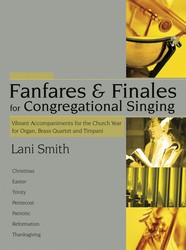- |
User Links
Hark, My Soul! It Is The Lord!

Hark, my soul! it is the Lord!
Author: William Cowper (1768)Tune: ST. BEES (Dykes)
Confession Songs
Published in 695 hymnals
Printable scores: PDF, MusicXMLAudio files: MIDI, Recording
Representative Text
1 Hark, my soul, it is the Lord;
'tis thy Saviour, hear his word;
Jesus speaks, and speaks to thee,
'Say, poor sinner, lov'st thou me?
2 'I delivered thee when bound,
and, when wounded, healed thy wound;
sought thee wandering, set thee right,
turned thy darkness into light.
3 'Can a woman's tender care
cease towards the child she bare?
Yes, she may forgetful be,
yet will I remember thee.
4 'Mine is an unchanging love,
higher than the heights above,
deeper than the depths beneath,
free and faithful, strong as death.
5 'Thou shalt see my glory soon,
when the work of grace is done;
partner of my throne shalt be:
say, poor sinner, lov'st thou me?'
6 Lord, it is my chief complaint
that my love is weak and faint;
yet I love thee, and adore;
O for grace to love thee more!
Source: Ancient and Modern: hymns and songs for refreshing worship #654
Author: William Cowper
 William Cowper (pronounced "Cooper"; b. Berkampstead, Hertfordshire, England, 1731; d. East Dereham, Norfolk, England, 1800) is regarded as one of the best early Romantic poets. To biographers he is also known as "mad Cowper." His literary talents produced some of the finest English hymn texts, but his chronic depression accounts for the somber tone of many of those texts. Educated to become an attorney, Cowper was called to the bar in 1754 but never practiced law. In 1763 he had the opportunity to become a clerk for the House of Lords, but the dread of the required public examination triggered his tendency to depression, and he attempted suicide. His subsequent hospitalization and friendship with Morley and Mary Unwin provided emotional st… Go to person page >
William Cowper (pronounced "Cooper"; b. Berkampstead, Hertfordshire, England, 1731; d. East Dereham, Norfolk, England, 1800) is regarded as one of the best early Romantic poets. To biographers he is also known as "mad Cowper." His literary talents produced some of the finest English hymn texts, but his chronic depression accounts for the somber tone of many of those texts. Educated to become an attorney, Cowper was called to the bar in 1754 but never practiced law. In 1763 he had the opportunity to become a clerk for the House of Lords, but the dread of the required public examination triggered his tendency to depression, and he attempted suicide. His subsequent hospitalization and friendship with Morley and Mary Unwin provided emotional st… Go to person page >Text Information
| First Line: | Hark, my soul! it is the Lord! |
| Title: | Hark, My Soul! It Is The Lord! |
| Author: | William Cowper (1768) |
| Meter: | 7.7.7.7 |
| Language: | English |
| Copyright: | Public Domain |
| Liturgical Use: | Confession Songs |
Notes
Hark, my soul, it is the Lord. W. Cowper. [Divine Love.] Published in Maxfield's New Appendix, 1768, and again in the Gospel Magazine, August, 1771, in 6 stanzas of 4 lines, and signed "Omega." In 1774 it was included in R. Conyers's Collection, No. 53; and in 1779 in the Olney Hymns, Book i., No. 118. It rapidly attained great popularity with hymn-book compilers; and is found at the present time in most of the high-class hymnals in all English-speaking countries. It is a lyric of great tenderness and beauty, and ranks as one of Cowper’s best hymns. In Kennedy, 1863, No. 503, the opening line is mutilated into "Hearken, soul, it is the Lord." This is not repeated elsewhere. The original has been translated into several languages, including Latin: "Audin'? Adest Dominus," by John W. Hales, in the Academy, Nov. 3rd, 1883; and Italian:—"Senti, senti, anima mea," by W. E. Gladstone, in the Nineteenth Century, 1883.
--John Julian, Dictionary of Hymnology (1907)
======================
Hark, my soul, it is the Lord, p. 488, i. Rendered into Latin as "Audi, Anima! loquentem," by H. M. Macgill, in his Songs of the Christian Creed & Life, 1876.
--John Julian, Dictionary of Hymnology, Appendix, Part II (1907)
Access an additional article on the Canterbury Dictionary of Hymnology:
Timeline
Arrangements
Media
Small Church Music #7005
- PDF Score (PDF)


 My Starred Hymns
My Starred Hymns





